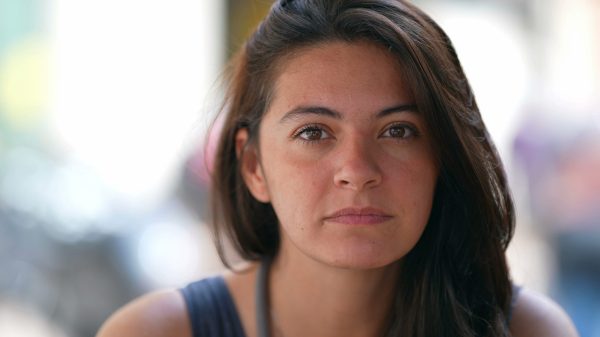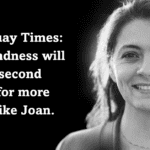A Lifelong Battle with Addiction
Joan’s story is one of resilience, struggle, and ultimately, hope. At 46 years old, Joan has been battling addiction for most of her life. Her journey into substance use began tragically early, at the tender age of 10, following the death of her mother. Left to care for her baby sister while her father succumbed to alcohol, Joan turned to Calpol, a children’s pain reliever, as her first attempt to numb the overwhelming pain she felt. This early self-medication marked the beginning of a long battle with addiction that spanned nearly four decades.

The Downward Spiral
As Joan grew older, her substance use escalated due to trauma. At the age of 15, she was abused by two male relatives on her father’s side who were alcoholics. This abuse occurred over a period of time and deeply affected her emotional well-being and sense of safety at home. The trauma from these experiences had a profound impact on her mental health and contributed to her struggles with self-esteem and trust. She had started smoking heroin, and her teenage years were marred by various substances, including hash, acid, and prescription drugs. Despite periods of sobriety, including during her first pregnancy at age 25, she later relapsed into substance abuse, battling cocaine, alcohol, and other drugs. Despite these struggles, Joan consistently sought help through counselling and therapy. She managed to hold down a job and raise her children, always striving for a semblance of normalcy. However, the weight of her unresolved traumas and the coercive control within her marriage eventually became unbearable. Her addiction later took a turn for the worse, with cocaine and alcohol becoming her primary escapes.
Seeking Solace in High Park
Joan’s decision to seek help at High Park came at a critical juncture. Having attempted to take her own life multiple times, she realized that she needed to break free from her destructive cycle for the sake of her children and herself. Her journey to High Park wasn’t easy; she faced significant resistance from within, often wanting to run away from the intense therapeutic environment. However, the unwavering support of the staff and the structured program at High Park began to make a difference.
“Anybody that’s scared to come here, you have to just… It seems like for me it was the time. I was like 14 weeks? I can’t do 14 weeks. But the time has just gone in the blink of an eye. The days are long but the weeks are fast. Like I’m like oh my God I’m halfway already. And I feel like I only came in two weeks ago. It’s tough. But if you really want it, if you want to get better and you want to really look at yourself, it’s not even really about addiction. It’s about your behaviors. It’s about what brought you to these places.”
The Path to Recovery
High Park provided Joan with more than just a safe space; it offered her a comprehensive support system that addressed not only her addiction but also the deep-seated traumas that fueled it. The psychoeducation, processing groups, and one-on-one therapy sessions allowed Joan to confront her past and start rebuilding her future. She discovered the importance of talking about her pain, a stark contrast to the years she spent burying her emotions.
“For me, the healing is in getting the stuff out. It’s not holding it in here anymore. I always feel like my pain is like a ball in my stomach. And when I’m talking about stuff I feel like I have a big ball inside me. And I’ve noticed after my one-to-one sessions or you know once I start talking in groups and stuff not there and then but the next day I feel so much better”
A Message to Donors
Joan’s story is a testament to the transformative power of support and compassion. For donors who contribute to services like High Park, Joan‘s words offer a profound reminder of the impact their generosity can have:
“I just really feel that there’s just not enough put into these services in the country. Genuinely I feel that addicts are really kind lost people behind the addiction. And if we can’t get support and help in this way you’ve got really really good people that are just going to end their lives or live their lives in turmoil or put their addiction onto their children and it’s just a knock-on effect. And as you said and it’s true you don’t choose to be an addict.”
Looking Forward
As Joan continues her journey through High Park, she looks forward to a future where she can reclaim her independence and live a life free from the shadows of her past. She envisions returning to her job, providing a stable and nurturing environment for her children, and most importantly, living for herself.
‘’For me, the future is being strong, back to being independent, and being able to live my life without having to use substance to feel okay. I believe it’s going to be the best thing that I’ve ever done for myself. For my children, my family. And they’re so supportive of me. My boys are very, very supportive.’’
Joan’s journey is far from over, but her story is a powerful reminder of the resilience of the human spirit and the profound impact of support and compassion. High Park has given her the tools and the hope to rebuild her life, and with continued support, many more like Joan can find their path to recovery and a brighter future.
High Park and other services like it rely on the generosity of donors to continue their life-saving work. If Joan’s story has touched you, consider making a donation to help support individuals struggling with addiction and trauma. Together, we can make a difference and provide hope and healing to those who need it most.
